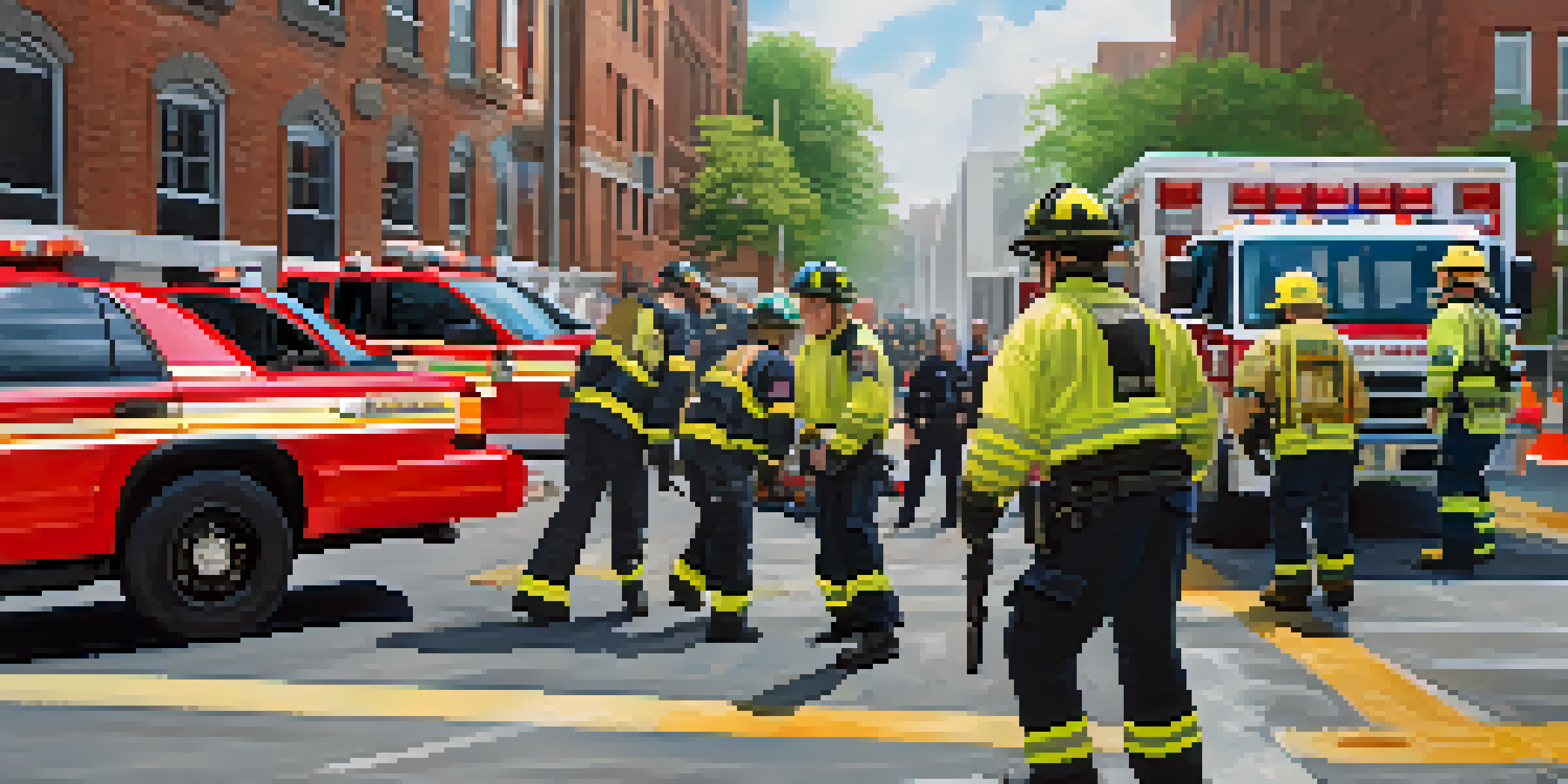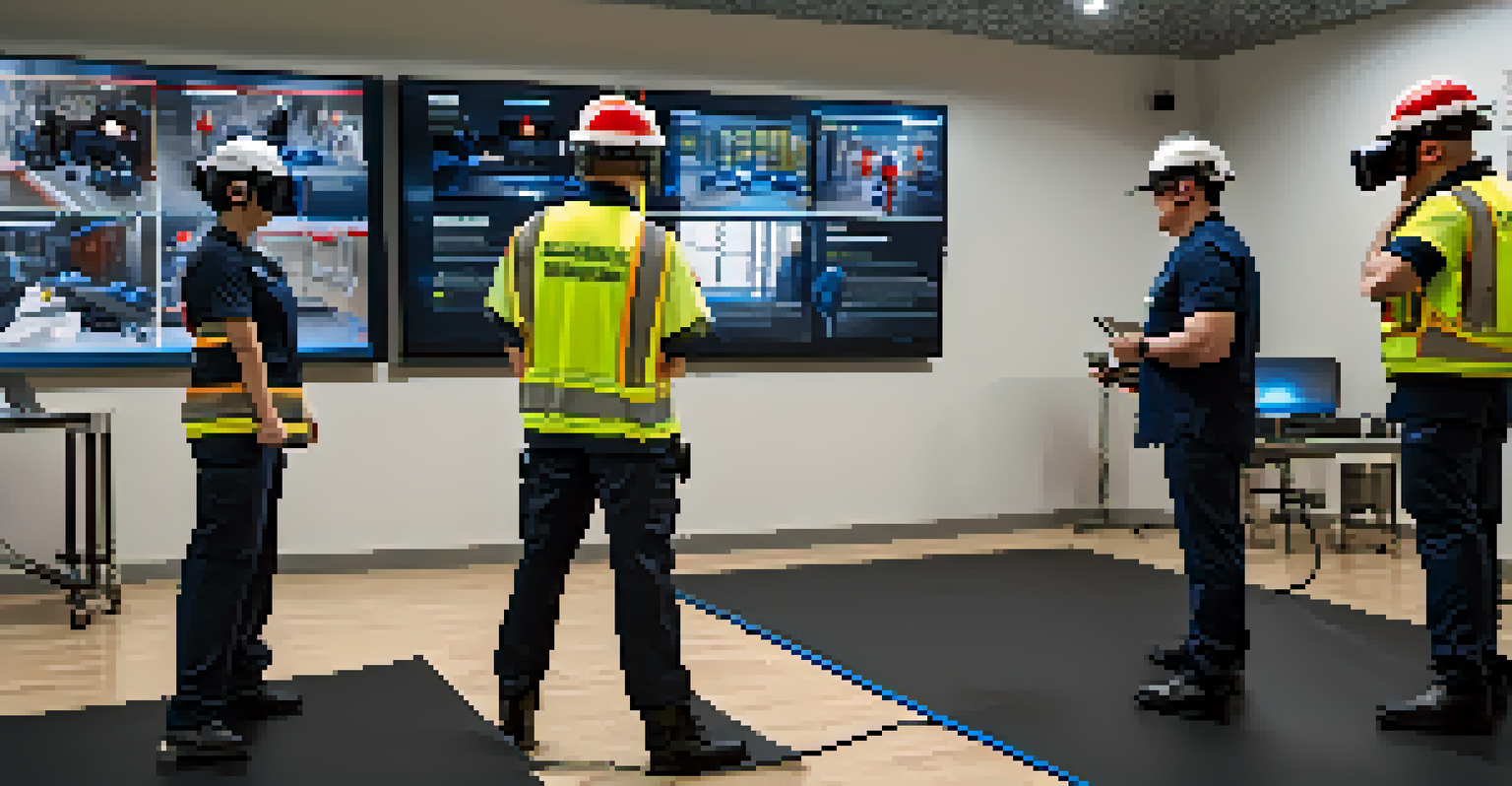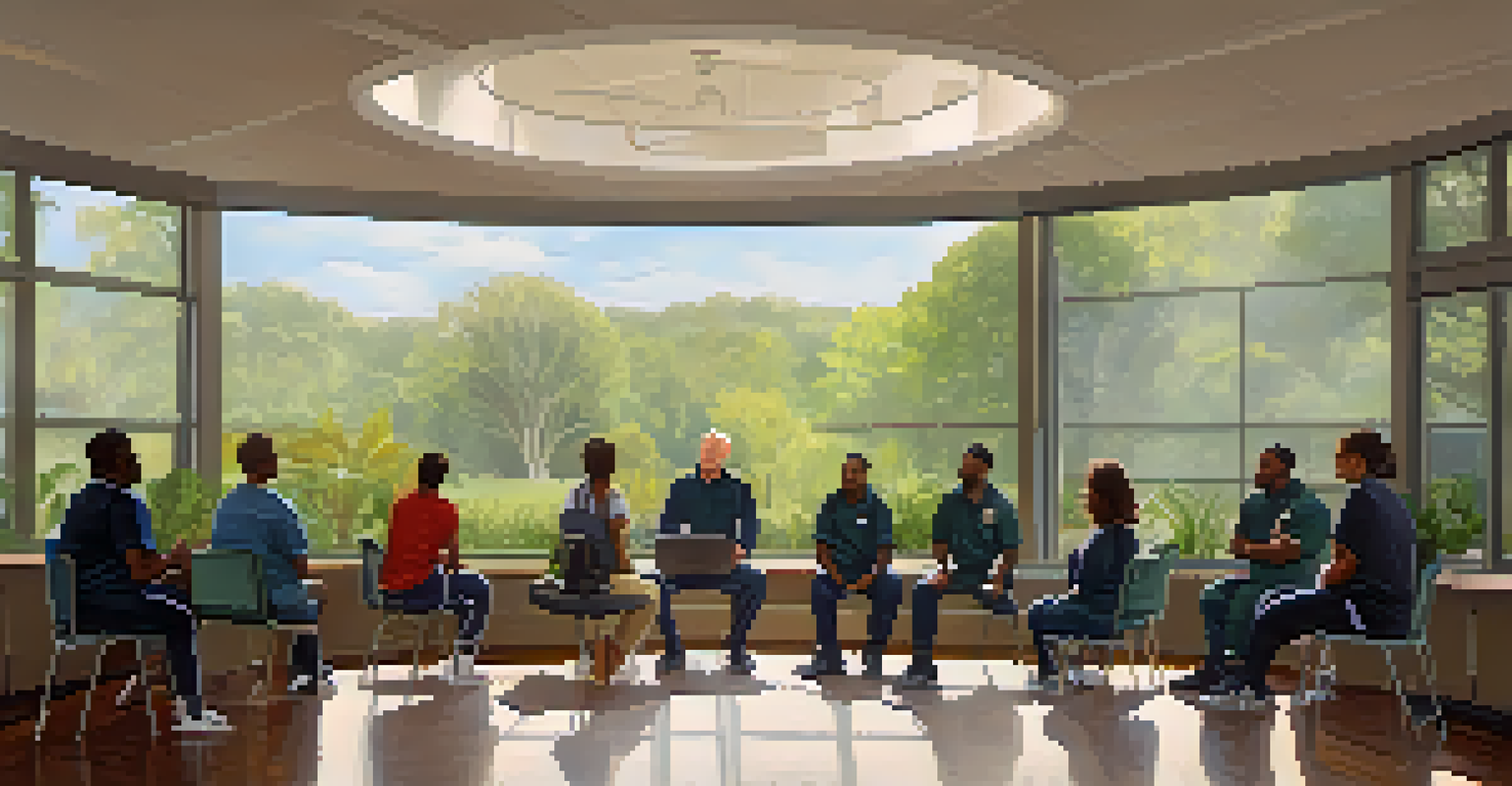Training First Responders for Emergency Situations

Understanding the Role of First Responders in Emergencies
First responders are often the first line of defense in emergency situations, including medical crises, natural disasters, and accidents. Their quick response can be the difference between life and death, highlighting the importance of comprehensive training. This role requires not only physical skills but also mental resilience to handle high-pressure situations effectively.
The greatest gift of human beings is that we have the power of empathy.
In essence, first responders include police officers, firefighters, EMTs, and other trained individuals who arrive at the scene of an emergency. These professionals must be prepared to assess situations rapidly, administer first aid, and coordinate with other services. Understanding their critical role helps underscore the need for ongoing education and training.
Moreover, continuous training ensures that first responders are well-versed in the latest protocols and technologies. As emergencies evolve, so too must the strategies and skills of those who respond to them. This adaptability is crucial for maintaining safety and effectiveness in their operations.
Key Skills Required for Effective Emergency Response
Effective emergency response hinges on a variety of crucial skills. First responders must excel in communication, teamwork, and problem-solving, as emergencies often require quick, coordinated action among multiple parties. Being able to convey information clearly can make a significant difference in how a crisis unfolds.

Another vital skill is situational awareness; responders need to assess their environment quickly and accurately. This includes identifying potential hazards, understanding the nature of the incident, and anticipating the needs of victims. Training programs often simulate real-life scenarios to help responders develop this critical ability.
Critical Skills for First Responders
First responders need strong communication, situational awareness, and technical skills to effectively manage emergencies.
Furthermore, technical skills such as CPR, first aid, and the use of emergency equipment are fundamental. Regular practice and refreshers on these techniques ensure that first responders remain confident and proficient when it matters most. Skills training must be dynamic to adapt to new challenges and developments in emergency management.
Importance of Scenario-Based Training for Responders
Scenario-based training immerses first responders in realistic emergency situations, allowing them to practice their skills in a controlled environment. This type of training helps to build muscle memory and enhances decision-making under pressure. By experiencing high-stress situations, responders can learn to manage their emotions and reactions effectively.
In the midst of chaos, there is also opportunity.
For example, simulations can range from mass casualty incidents to natural disasters, providing a broad spectrum of experiences. These exercises encourage collaboration and communication among team members, reinforcing the importance of working together seamlessly. Participants can also receive immediate feedback from instructors, which is invaluable for improvement.
Moreover, engaging in these scenarios can help identify gaps in knowledge and skills, allowing for targeted training solutions. First responders can refine their techniques and address any weaknesses in a supportive learning environment. This proactive approach ultimately leads to better preparedness for real-life emergencies.
Integrating Technology in First Responder Training
As technology advances, it plays an increasingly vital role in training first responders. Tools like virtual reality (VR) and augmented reality (AR) can create immersive training experiences that mimic real-life scenarios. This innovative approach enhances learning by making training more engaging and realistic.
Additionally, mobile applications and online platforms provide convenient access to training materials and resources. Responders can refresh their knowledge on-the-go, ensuring they’re always prepared. These digital resources can also facilitate ongoing education, helping responders stay current with the latest techniques and protocols.
Importance of Mental Health Training
Mental health training equips first responders with coping strategies to handle the emotional toll of traumatic situations.
Moreover, data analytics can help evaluate the effectiveness of training programs. By analyzing response times, decision-making processes, and outcomes, agencies can refine their training approaches. This data-driven strategy ultimately leads to more efficient and effective emergency response.
The Role of Mental Health Training for First Responders
Mental health training is crucial for first responders who frequently encounter traumatic situations. The emotional toll of these experiences can lead to issues such as PTSD, anxiety, and depression. By prioritizing mental health training, agencies can help responders develop coping strategies and resilience.
Workshops and counseling services can provide valuable support, teaching responders how to process their experiences effectively. This training often includes stress management techniques, mindfulness practices, and peer support systems. Creating an environment where mental health is openly discussed can significantly reduce stigma and encourage individuals to seek help.
Furthermore, integrating mental health awareness into regular training sessions ensures that responders remain attuned to their emotional well-being and that of their colleagues. This holistic approach not only enhances individual resilience but also fosters a supportive team culture. Ultimately, a focus on mental health contributes to better overall performance in emergency situations.
Collaboration and Communication in Emergency Response Training
Effective communication and collaboration are essential components of emergency response training. First responders often work alongside various agencies, including police, fire departments, and medical teams. Training must emphasize the importance of clear communication to ensure a coordinated response.
Simulated joint exercises are an excellent way to practice these skills. By working together in a controlled setting, responders can learn to navigate challenges that arise during real emergencies. This shared experience fosters trust and understanding among different teams, leading to more efficient operations.
Role of Technology in Training
Integrating technology like VR and data analytics into training enhances the realism and effectiveness of emergency response preparation.
Moreover, utilizing communication tools such as radios and incident command systems in training prepares responders for real-world scenarios. Familiarity with these tools can reduce confusion and streamline information sharing during a crisis. Training that emphasizes collaboration ultimately enhances the overall effectiveness of emergency response efforts.
Evaluating and Improving Training Programs for First Responders
Evaluating training programs is essential to ensure they meet the evolving needs of first responders. Feedback from participants is invaluable, as it provides insights into the effectiveness of training methods and materials. Regular assessments can help identify areas for improvement and adapt programs accordingly.
Incorporating real-life incident reviews into training assessments can also be beneficial. By analyzing past emergencies, trainers can determine what worked well and what could have been done differently. This reflective practice encourages continuous learning and adaptation in response strategies.

Furthermore, collaboration with external experts can enhance the quality of training programs. By seeking input from experienced professionals in emergency management, agencies can implement best practices and innovative training techniques. Ultimately, a commitment to ongoing evaluation and improvement ensures that first responders are always prepared for the challenges they face.